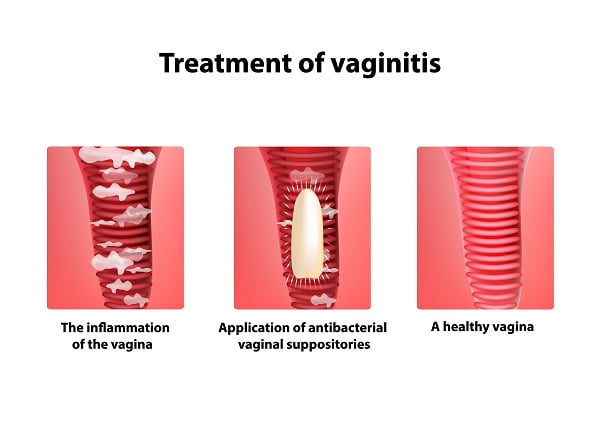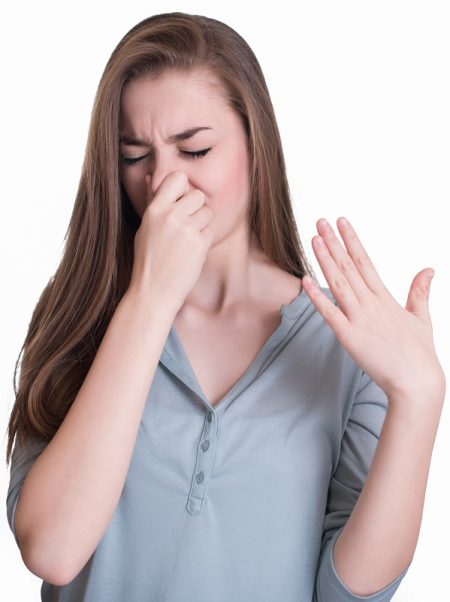Treating Different Types of Vaginitis
- Updated on: Jul 29, 2024
- 3 min Read
By
- Published on Oct 3, 2019

How do doctors treat vaginitis?
Some cases of vaginitis are mild (non-infectious vaginitis) and can be resolved by just adopting some preventive measures. But with more severe and stubborn cases which carry more severe risks, a proper treatment is necessary under the guidance of a healthcare professional.
Bacterial vaginosis and trichomoniasis are the severe types of infections and increase a woman’s risk of getting HIV infection. In such cases, proper medications and treatment are required.
Treating Mild (non-infectious) Vaginitis
Mild infections can be easily treated by taking some control measures and avoiding certain poor hygiene habits. Some of the preventive measures that can be helpful in treating mild infections are given below:
Shower daily
Try to keep the genital area clean. Wash the area with mild and non-scented soaps or wash.
Dry well after bathing, swimming and exercising
Moisture works as a breeding ground for bacteria and other micro-organisms. In order to prevent them, the vaginal area should be properly cleaned after bathing, swimming, exercising and any activity that cause sweating.
Avoid using vaginal sprays, cleansers and scents
There is a natural way of the vagina to clean itself. So, there is no need of any sprays, cleansers or scents to clean the vagina artificially.
Vaginal wash is commercially available in the market.
Practice safe intercourse
In order to avoid any infections, use of a condom is suggested every single time of intercourse.
Practice healthy hygiene habits
Keeping oneself neat and clean is very essential. After a bowel movement, wash the area from front to back. This will avoid the fecal bacteria to spread from the rectum to the vagina.
After urinating, the vaginal area should be properly washed with water and dried using clean cotton cloth or toilet paper.
Avoid tight clothing
Tight clothes can trap moisture inside and give rise to serious infections.
Stick to cotton undergarments
Nylon, silk and certain synthetics trap the moisture and do not allow the moisture to dry. Cotton undergarments soak the moisture and help in maintaining the dryness.
Complete the treatment
The treatment of the vaginitis should be completely followed as prescribed by the healthcare professional even if the symptoms disappear. It will prevent reoccurring of the symptoms.
Treating Severe Infections
Severe and stubborn infections need more care and proper treatment under the guidance of professionals. The treatment depends on the type and severity of vaginitis.
Before treatment, a lab test is needed to diagnose the type of vaginitis. Each type of vaginitis is treated differently. The treatment can include:
Treating bacterial vaginosis
Bacterial vaginosis is treated with the antibiotics. Antibiotics help in getting rid of the harmful bacteria and preserving the beneficial bacteria. The antibiotic used are:
- Metronidazole (can be used in oral form or gel form)
- Clindamycin
However, the antibiotics have an adverse effect on the developing fetus. Thus, for a pregnant woman, the medications should be changed accordingly. Timely consultation with a healthcare professional is required.
Treating yeast infections
Yeast infections are treated with antifungal medications. These medications are directly placed inside the vagina. The antifungal medications can be used in the form of creams, ointments and tablets.
Following are the commonly recommended medications:
- Butoconazole
- Clotrimazole
- Miconazole
- Nystatin
- Tioconazole
- Terconazole
Treating trichomonas vaginal infection
People with this infection are given:
- Metronidazole
This medication is given orally. It is not prescribed for pregnant women during their first trimester. Women who drink alcohol are advised to avoid drinking during the medication because it can trigger cramps, vomiting and headaches.
Treating vaginal atrophy
Vaginal atrophy can be cured with:
- Estrogen supplements
It can be given in the form of creams, ointments and tablets. The medication increases the level of estrogen which in turn reduces the symptoms of vaginal atrophy.












